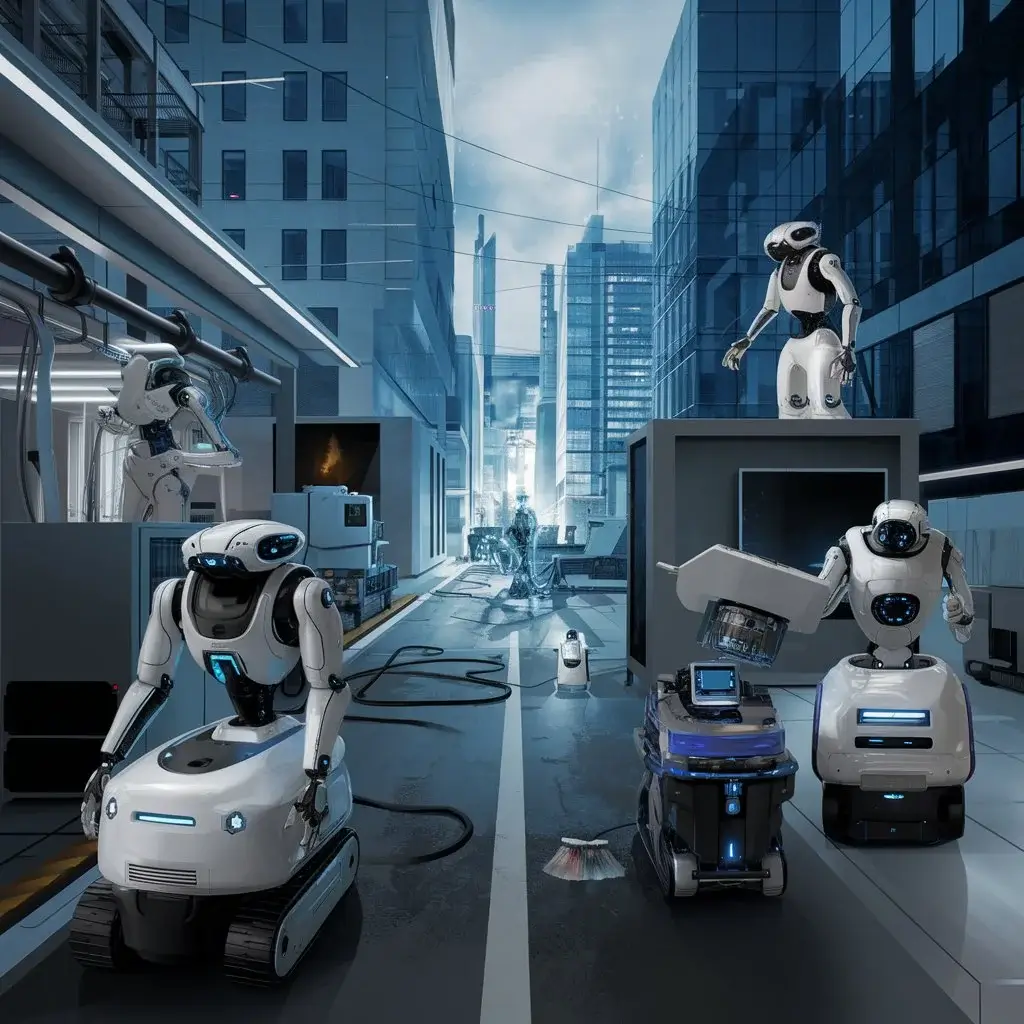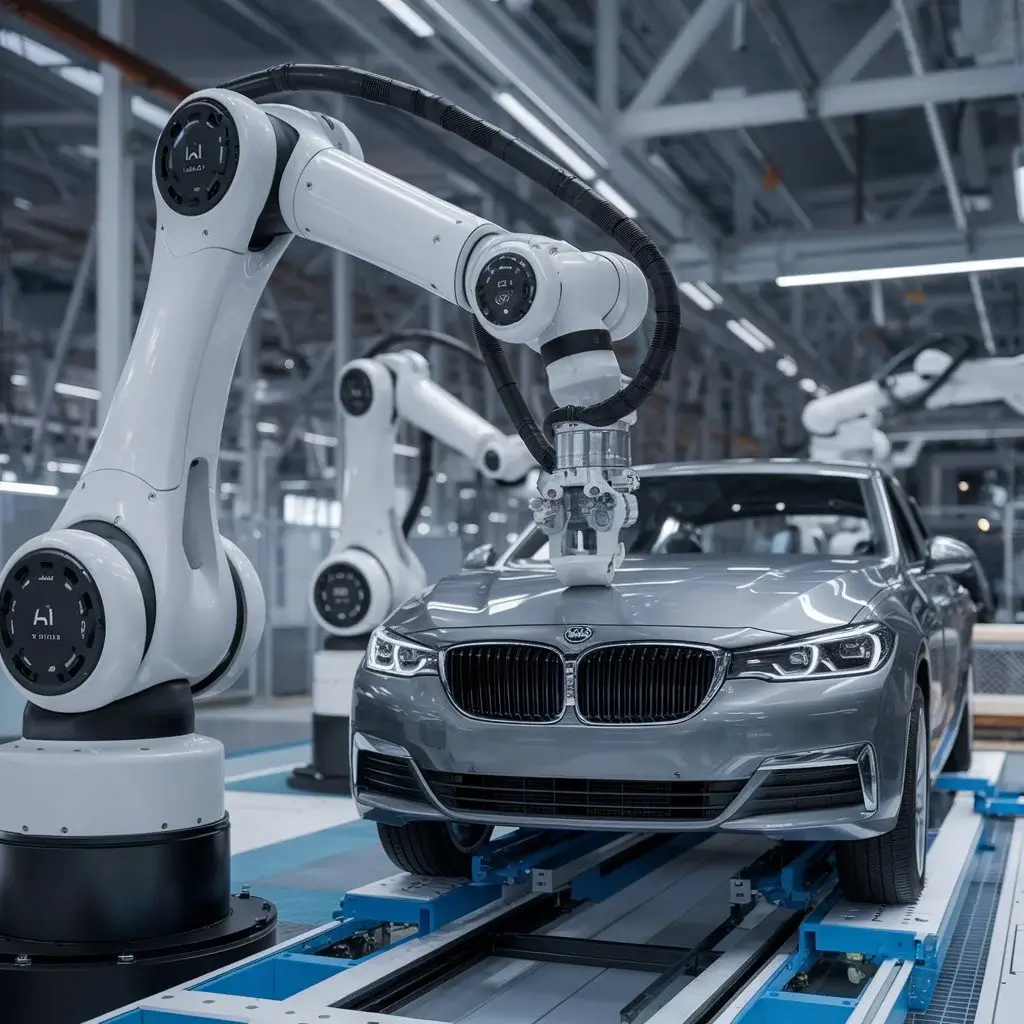AI is now on the rise influencing the business operations of many industries across the globe. It has a very significant role of simplifying human work and decision making through its use in automation, increasing productivity and opening new horities. Like any GPT, AI is not industry specific and affects almost every industry, much as electricity or the Internet.
Applying AI also allows considering the possibility of analyzing large amounts of data. AI is now present in nearly every industry conceivable – follow the links below to see how it has affected healthcare, finance, and many others. It improves upon the effectiveness of carrying out sophisticated computations in a matter of seconds only.
This paper therefore aims to answer the question: What is general-purpose technology?
A general-purpose technology is a technology whose use cuts across many fields of life. It can influence a number of sectors and initiate various sectors’ development. Electricity and the internet can be considered as examples of the past GPTs. GPT again has been discovered probable to be followed by AI into the next major one.
While several technologies impact specific areas in an organization, GPTs increase efficiency across varying industries. They become very relevant parts of different sectors. This goes to show that despite the focus area, AI is always capable of finding its way as is depicted below. It can assist in improving and optimizing business processes and eliminate or minimize expenses connected with organization’s operations.
From Global Think Tank to Industrial Scale AI
AI has proliferated greatly owing to the development in the field of machine as well as deep learning. Concerning flexibility, AI is greatly flexible because of its capacity to evolve on what has been taught to it. It can be applicable to different uses and change as a result. This flexibility assists it in shifting to new industries quickly-this consolidation is also the reason that has made it to adapt easily to the new industries.
AI is permeating many fields and is now a very important aspect of many areas in today’s society. It also enriches different operations, be it in retailing, education, or in transportation. These characteristics make the defined concept a general-purpose technology because of Its adaptability and its use. Almost every industry is now in the pockets of artificial intelligence.
AI in Healthcare
Some of the most dramatic uses of artificial intelligence have occurred in healthcare. It also had the advantage of machine learning algorithms making better predictions on the patients’ status. AI outperforms human diagnostician by diagnosing diseases at early stage.
Robotic machines powered by AI are applied in surgeries; the error level by humans minimized. These robots ensure more accuracy and lower recovery time than the earlier models. Portfolio – what the advanced research of molecular structures make AI develop new treatments and cures faster?
AI in Finance
It is also worth to note that the financial sector has also integrated the use of AI technology. The use of AI in the banking systems ensures that fraud is prevented easily and in the financial institutions this detection is easier. Machine learning algorithms review records of the transactions in order to detect fraud. AI is also applied in the predictive analysis in the stock markets as well.
By leveraging on artificial intelligence, a firm can make analysis on trends in the market and get real time results. This leads to improved decisions on investments being made by the investors. Virtual assistants and chatbots through artificial intelligence help in responding or better still answering clients’ queries quicker. This helps in cutting down response times and hence enhancing the happier side of customers.
AI in Manufacturing
Another field that has seen massive changes is manufacturing and it forms the next subtopic of this research. This then has minimized interaction between people in the production lines in line with automations by Artificial intelligence. This is so since through the use of artificial intelligence to predict maintainance, the extent likely to be taken by the machines before breaking down can be predicted. This is effective since the workers can spend a considerable amount of time working at the site hence increasing on productivity.

Another way that saves time and which I believe is a distinct advantage is quality control with the help of AI. With the use of AI, it is capable of identifying defects or even faults in products that may not be easily seen by the bare eyes The use of artificial intelligence in supply chain leads to improvement on transpiration hence in the delivery of goods. Manufacturers also get to benefit from some of the advantages that include; efficiency on complex operations through AI.
AI in Transportation
We can therefore say that the transportation sector is not left behind by the artificial intelligence. Self-driving cars may be one of the most well-known specimens of this status. Such vehicles can move, avoid obstacles and therefore minimize on the number of incidents.
AI enhances the management of traffic as well. With the aid of data coming from sensors and cameras, AI can ONLY map out traffic patterns. Some applications and uses of AI include the control of the flight routes by the airline industries in order to minimize the number of delays. AI for transport is making it more efficient and safer for use.
AI in Healthcare
In ways, healthcare has been one of the industries with huge indications of AI implementation. The applying of the machine learning algorithm in Cerner can be used to better predict a patient’s outcome. That is an indication that AI can diagnose diseases at earlier stage as compared to human doctors.
And these robots have increased the precision in their working capacity and recovered time. Another example of the benefits of using AI is possible in identification and development of new drugs. With the help of the analysis of molecular structures, AI accelerates the creation of new treatments.
AI in Finance
Machine learning algorithms investigate the patterns of the transactions in order to identify_potentially fraudulent conducts. AI is also applied in the fields of prediction of stock markets.
Automated technological solutions also have the capability to assess prevailing trends within the markets, and give this information with a bit of précised time. This helps investors in making right decisions that are best for investing. This helps to reduce the response time while helping to improve the levels of customers’ satisfaction.
AI in Manufacturing
Another sector which has been positively affected by AI is manufacturing. Human intervention has been minimised through use of automation through production lines by incorporation of AI. The use technology in maintenances, particularly AI-based systems can predict the breakdowns of most machinery.
Another shared benefit of using AI is that it can also facilitate with quality control. It detects flaws in products which might not easily be noticed by a human being The incorporation of AI in supply chains enhances the flow of goods in that it ‘swifts up’ the distribution process.
AI in Transportation
The use of AI in the transportation industry is creating a revolution which is good and beneficial. Of the advanced technologies, self-driving cars are maybe the most well-known one. These vehicles are self-driven, can steer clear of barriers and mitigate on instances of accidents.
It also has the effect of enhancing the management of traffic on the overall roads. From the analysis of the data collected by sensors, AI can determine optimal movement of cars on the roads as well as control the of traffic lights. Some of them are in the following; the airline industry is applying AI in managing the flight routes as well as avoiding delays. When it comes to transportation, the use of AI for transport is being applied to make transport to be safer and efficient.
Application of Artificial Intelligence in Retail and Electronic Commerce
There is a surge towards adopting artificial intelligence to enhance the experiences of consumers by the retailers. Artificial intelligence recommendation systems help online stores to make recommendations to customers. Such systems incorporate the feature of browsing history as well as purchase history of the user or even suggest products.
Another, aspect, where AI plays a significant role is in the management of inventories. It forecasts the demand thereby make available products that are in high demand. Chatbots in e commerce primarily focus on customer service aspects help with customer service. It solves most of the common questions within a short time so that people do not have to wait for long. The implementation of AI in the retail industry enhances customer relations due to the level of responds the business ventures provide.
AI in Education
By implementing intelligent tutoring system on learning platforms students need to be taught depending on the individualist approach. He changes the speed and material according to the different learners that are in the classroom. This in turn lead to a more personified learning environment.
Computerize grading systems can grade examinations and assignments within the shortest time possible. This relieves the burden from regular teacher’s performance and enables them to teach for more hours. Additional help is given by artificial intelligence aided tutoring systems. They give an account and solve exercises for bettering the performance of students.
Ethical Considerations
With AI becoming more common human factors to contemplate are ethic. AI deployment depends on three ingredients – scale, personal data, and time. This is key for maintaining general public trust in AI Applications that exist in our daily lives.
In the case the data is biased, then the outcomes developed from the data will also be bias and hence prejudiced. There are different steps to take in order to effectively resolve these problems, one of which is to make the systems transparent. But for this to work, it is important that the regulators and developers do so in conjunction. Thus, it has been deemed important that ethical approaches to developing the AI is upheld in order for its success to continue especially within its role as a GPT.
Artificial Intelligence and the future of workplaces
It is, therefore, expected that AI is going to transform the nature of work in the next couple of decades. There were concerns that through automation certain jobs would be eliminated, but the good news is that new ones will be created too.
New identities of work will have to be constructed, and the learner will have to get accustomed to a set of new skills. It is the reason governments and educational institutions should provide necessary funding for the retraining programs. These programmes can assist the workers to change their careers and work in fields that are related to Artificial Intelligence. The opportunities of usage of technologies such as AI has shown to improve productivity, but caution is needed in order avoid automation of jobs.
Application of Artificial Intelligence in Research and Development
Through the use of AI, the rate in which new R&D is being conducted is now faster than ever before. AI can make a great number of computations within a very short period of time compared to that of other similarly equipped systems. AI helps in computation then in simulations and modeling, it helps scientists experiment with ideas without physical experiments.
Conclusion
That said Artificial Intelligence is without any doubt an innovation technology. Consequently, since the information computer is a general-purpose technology, its use is quite widespread cutting across various fields. Artificial intelligence is becoming taller and is changing the tone of industries and work and life.
Therefore, it is possible to keep the subsequent waves of AI as a positive factor in the world economy, provided that sufficient protection means are used. Its developmental cycle as a general purpose technology is only at its embryonic stage.






